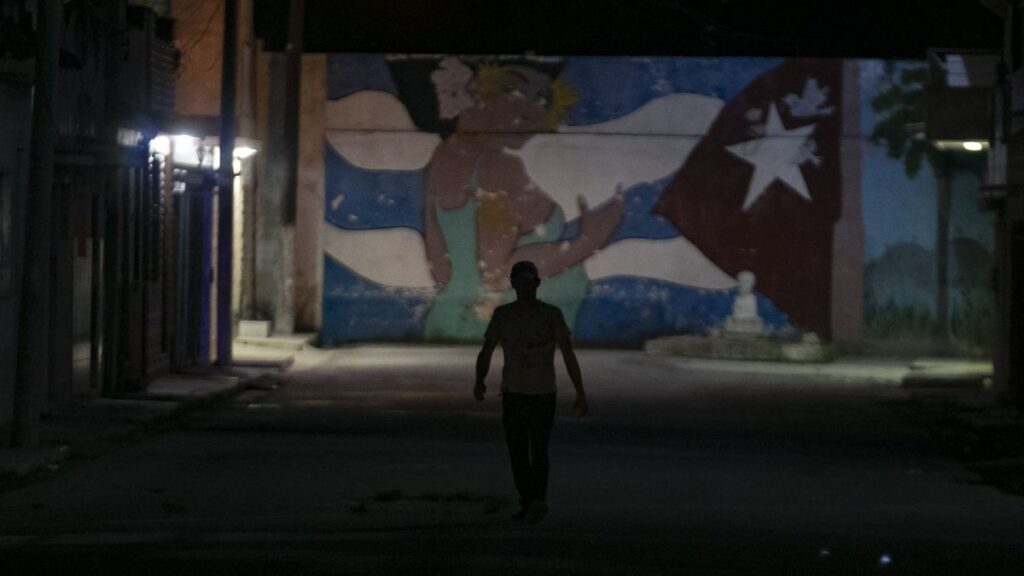Cuba was once again plunged into darkness this week by a nationwide power outage, leaving many without access to food and water. The country’s power grid has repeatedly collapsed, and while electricity has been restored in some areas, others are still waiting days for aid to arrive.
NPR said the causes of the crisis are “multifaceted,” but the blackouts are seen as a “new low” for a government already struggling with public perception.
Who is affected?
According to the Associated Press, “about half” of the Caribbean country was initially affected by the failure of the Antonio Guiteras thermoelectric power plant, just east of the capital Havana. The entire island was soon hit by a power outage, and on October 18, the government announced that the national power grid had been “completely disconnected.”
Subscribe this week
Escape the echo chamber. Get the facts behind the news and analysis from multiple perspectives.
Subscribe and save
Sign up for this week’s free newsletter
From our morning news briefing to our weekly Good News newsletter, get the week’s best stories delivered straight to your inbox.
From our morning news briefing to our weekly Good News newsletter, get the week’s best stories delivered straight to your inbox.
According to the BBC, food began to “rot in refrigerators” due to the power outage and many homes “ran out of water.” According to Al Jazeera, the “desperate” situation forced the government to temporarily “paralyze the economy”, suspending non-essential state services and closing schools, as well as “all cultural activities and discos.” and other recreation centers were forced to close. Businesses across the island have been forced to close.
Why is electricity so unreliable?
Power outages are not uncommon in Cuba. According to NPR, power plants across the country are “aging and in dire need of maintenance,” and crises like this one “have been going on for years.” Cuban energy expert Jorge Piñon told El Pais that Cuba’s electrical system is “almendron.” The term refers to the “classic 1950s American cars” that are famous in the Cuban capital and are constantly breaking down. Providing power to the island in 2024 is “like wanting to compete in the Monaco Grand Prix in a 1950s car,” he added.
Caribbean countries produce so little fuel that they rely on imports to “maintain the grid,” NPR said. The broadcaster added that the problem was exacerbated by the country’s ally and “major fuel supplier” Venezuela, which had cut back on shipments. Mexico and Russia followed suit, leaving Cuba at an impasse. Cuban politicians also blame the U.S. embargo and a series of sanctions imposed by President Donald Trump for ongoing difficulties. The US denies responsibility for the current power grid collapse.
What is the reaction from Cubans?
According to the BBC, some Cubans have taken to the streets in an “unprecedented public expression of dissent” in a communist country and could be jailed. Residents are “banging pots and pans” in defiance, shouting “turn on the lights!” Patience was “wearing thin” during the protests, but Cuban President Miguel Díaz-Canel called on Cubans to behave with “discipline” and “decency” in a national address on Sunday.
According to Reuters, the situation has reached a boiling point in Havana, where residents say the power outages, which last for “18 to 20 hours a day,” are the “last straw” in a growing problem across the country. . Dusk has been a “particularly frenetic” time, with people coming out of their homes and forming “long queues” for bread, while also looking for water and news about what’s coming next. The Guardian reported that there were also people.
What happens next?
Power is being restored in large parts of the country, but the solution is a “short-term fix” and “the next state collapse” could be “just around the corner,” El Pais says. he said.
The newspaper added that clean energy could be one of the answers, as the country has pledged to generate “37% of its electricity from renewable sources by 2030.” But critics question the feasibility of such a plan given the scale of the ongoing crisis. According to Reuters, Cuba plans to establish “26 solar power plants” over the next two years in hopes of meeting “about a third of existing demand.” But previous plans have been hampered by the “economic crisis, fuel shortages and lack of funding.”
Meanwhile, the myriad problems facing Cuba are likely to “facilitate further exodus” from a country that is already suffering the exodus of hundreds of thousands of its citizens, Box said. As opposition continues to grow, observers are already witnessing a “new wave of immigration,” which is likely to increase if the problem is not addressed soon.



